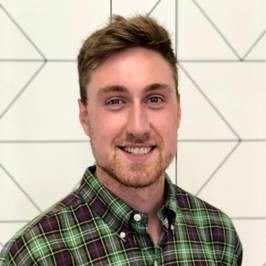Date: 8th September 2020, 14:00 - 15:00
Speaker: Chris Golding, Postgraduate Researcher at Durham University Business School
Title: "Emotion: the key to innovation?"
Chris recently delivered a talk on how emotion affects the innovation process, amongst other key organisational processes and activities. Chris provided illustrative examples from his own researched and offered a number of practical recommendations and strategies.
Without question, innovation is crucial to the survival and prosperity of contemporary organizations. However, it is well-known that incumbent organizations often struggle to pursue particularly novel forms of innovation.
History is replete with examples of incumbents surrendering their market leadership because they were unable to innovate and adapt – think Nokia, Blockbuster, Polaroid and Kodak. And yet, other incumbents like Netflix have been able to successfully innovate and reap the associated rewards. This begs the question: why can some incumbents innovate and adapt, whilst others cannot, or do not?
The answer might be simpler than you think: emotion.
In this talk, we explored how emotion can affect the innovation process, amongst other key organizational processes and activities. We delved into the psychology of emotion and unpack how emotions can be consequential for us as individuals, for the teams we work in, and for the organizations we work for and run. Chris highlighted what emotions might be expected in the innovation process, providing illustrative examples from his own research, and offered a number of practical recommendations and strategies that can be taken away and used in your everyday work.
Bio:
Chris is a postgraduate researcher at Durham University Business School, where his doctoral research has investigated how emotion affects the pursuit of novel technological change at incumbent organizations. Chris’ primary area of expertise is innovation and strategy process which he explores using concepts from social psychology to understand how organizational actors are able to navigate the uncertain and ambiguous circumstances in which strategy and innovation take place.
He has a particular interest in emotion, technological innovation, managerial cognition and framing (i.e. how ideas can be communicated to engender support and mobilize action).
Outside of academia, Chris is an avid sportsman, filling most of his spare time as a performance hockey coach for Leeds HC and as part of the England Hockey Performance Pathway. Next year Chris is taking part in a 1,000 mile charity cycle from Land’s End to John O’Groats to raise money for OcuMel UK, an eye-cancer charity







